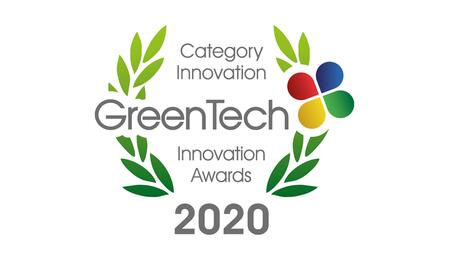Greenhouse Tech The Future

Technological innovation never stops. We rely on the power of machines, robots and computers to do something for us, faster, more accurately and more efficiently. The commercial farming and horticulture industry is no exception to this.
The legalisation of cannabis and the COVID crisis has led to a considerable demand rise for cannabis, meaning more product and faster production to meet that demand. Producers are also looking for ways to keep costs down and make production more automated in an attempt to save on wages and overheads, again in the face of challenging times that the COVID public health crisis has brought upon us. The recent "Green Tech Amsterdam" event took place online in June and showcased some of the new products and ideas from the companies leading the way in greenhouse technology. "Green Tech" is the leading platform for the protected horticulture technology industry. It focuses on technological advances in the world of greenhouse horticulture for soft food crops such as veggies and fruits along with the cultivation of medicinal cannabis. Here we will have a closer look at some of the newest developments in greenhouse tech and what they mean for the future of indoor cannabis production. There are many innovations used in commercial growing that assist with plant nutrition, biological crop protection, climate control and optimal light spectrum. All of which helps to eliminate human error and provide a much more accurate set of data to work from than any traditional farming method allows. Using Autonomous cultivation systems and AI algorithms allows the grower to define set points for temperature, light amount, heating, co2 concentration, and other cultivation-related parameters such as plant and stem density and fruit pruning. Not only can it save money, but it can also make production more sustainable as energy waste becomes minimal due to the whole cultivation process becoming optimised. Data-driven growing or DDG is continually evolving, and letsgrow.com are one of the companies at the forefront of that trend, helping fruit, veg, flower and cannabis growers make the transition from traditional farming to data-driven farming. To achieve this hardware is used that can help indoor crop cultivators with optimisation to the point where they can expect to use 20% less water gas and fertiliser while increasing their overall production by over 10%. Growers can personalise their programmes to meet their specific needs, choosing between optimising quality, increasing production and limiting energy usage. The data is analysed and combined with plant physiological models, field expertise and experience to see what your plants need and when they need it. An excellent example of what this system is capable of is the way that it can assess to what extent the plant uses collected light for photosynthesis and then adjust this as necessary. The "crop observer" system measures photosynthesis by using an "evaporation and stomata sensor" to monitor the position of the stomata and the energy and water balance, so, whether the plant is in balance or stressed. Collated data is then analysed, and a new calculation is made based on what the correct light intensity for optimal growth should be considering the current circumstances and readings. This kind of detail and level of analysis is astounding and is proven to work with at least a 5% rise in production reported as a result of using this one tool alone. You can only imagine; therefore, the kind of boost in production, yields and quality that a full, robust data-driven growing system such as this could provide to commercial cannabis farmers. As well as DDG looking to improve the health and yields of species of plants, there are also moves focused on helping the production of healthier, more productive and desirable strains of plants such as cannabis from the earliest point of the farming process, the seed. Plantik biosciences is a European company that specialises in plant breeding technology, and who are currently running a smart breeding programme. The programme is a combination of 3 technologies, gene editing, bioinformatics ( the analysing of complex biological data) and speed breeding which aims to eliminate the degree of randomness that you find in traditional breeding. All of these aspects combined will allow for the production of new plant varieties to meet market demands up to 10 times faster than is currently possible and with more precision. Presently, it can take years to perfect a stable and commercially attractive plant variety. With demand for food crops and cannabis ever on the up; however, this time frame cannot sustain either future food security or solve the challenges presented by climate change. If Plantiks breeding programme is successful, it will allow cannabis breeders to create stable genetics, faster. Additionally, Plantik is also working on creating strains with reliable resistances against current diseases along with plant strains suitable for growing in different climates and light conditions. Something which could revolutionise the practice of growing cannabis for hobbyists and large scale commercial growers alike. New commercial and medicinal strains could be introduced within 6-18 months to meet market demands, whereas currently, such a process can take eight years or longer. The first plant that Plantik are working on is industrial hemp which is as an ideal choice due to its potential uses in the field of health, nutrition and sustainability. Due to the challenges of COVID 19, food safety, food waste, movement of goods, people and availability of employees have all become an issue this year, and this has reflected in innovation in all areas of horticulture. One of these areas being the growing systems used in commercial greenhouse farming. The "Vertical Farming" system could be the answer to a lot of the problems that the pandemic has spawned. Here's why. In a vertical farming system Herbs (including cannabis) Leafy greens and micro-greens can be grown all year round in a closed environment that is less affect ted by climate and where fewer "food" miles are needed. Vertical farming sees less dependence on imports and physical human resources. Space increases to a maximum, the carbon footprint decreases to a minimum and operations become cleaner along with improvement in safety, security and traceability. Montel is a company, which specialises in commercial vertical farming racks, founded in 1924, and their latest designs are as high tech and efficient as it gets featuring many attractive qualities for the commercial greenhouse cannabis grower and food producer alike. The newest models are lightweight, rust-resistant and able to withstand weights of up to 8000lb per bay. They all have fantastic inbuilt irrigation technologies and can be used in either static position or in a mobile form which expands on demand. The racking systems can also be produced to Custom, to accommodate monitoring equipment that can read and track the health of each plant. Frames are built with precision to provide better airflow and to compliment ventilation and light systems. The use of a microbial powder coats the racks, preventing mould and bacteria growth. An anti-fungal finish completes things and makes for a stain and scratch-resistant product. Cannabis demand is growing in both medical and recreational markets; however, many commercial producers are struggling to upscale due to expensive land costs and warehouse rents. Vertical farming technology is so useful in this respect as it addresses the priorities of space, whilst securing if not improving yields and profit thanks to the tons of holding power that these racking systems have. Handles on the ends of the racking systems allow for hundreds of plants to be rotated for close monitoring, easy access, individual maintenance, care and security. This year has been a great example of how the world is starting to view controlled environment gardening and vertical farming as the "plan B" of agriculture, a way to feed the world if/when traditional agriculture cannot meet our needs. The level of research, experimentation and innovation will continue to increase given the current pandemic situation and the growing food shortages that already exist in the less developed parts of the world. These developments are nothing but good news for cannabis producers and end-users alike as it can only lead to more choice and better quality, more sustainable product. The ideas we have looked at are just a small example of the types of technology that are currently under development. You may think that this innovation only applies on a commercial scale and that it does not relate to the hobbyist grower, but that couldn't be further from the truth. All this technology will eventually trickle down the horticulture hierarchy. The ideas may be adapted to fit, but there is little doubt that in some way in the future, these technologies will become a regular feature in many grow rooms. Technological evolution is a natural progression in today's world; you can't escape it. Whilst many remain cautious and suspicious, preferring to stick to the old fashioned and traditional ways of doing things, I think that on the whole, we should all try and embrace these new ideas in our Grow rooms. In the world, we live in today, and with the many challenges we face, the benefits can only outweigh the negatives.



